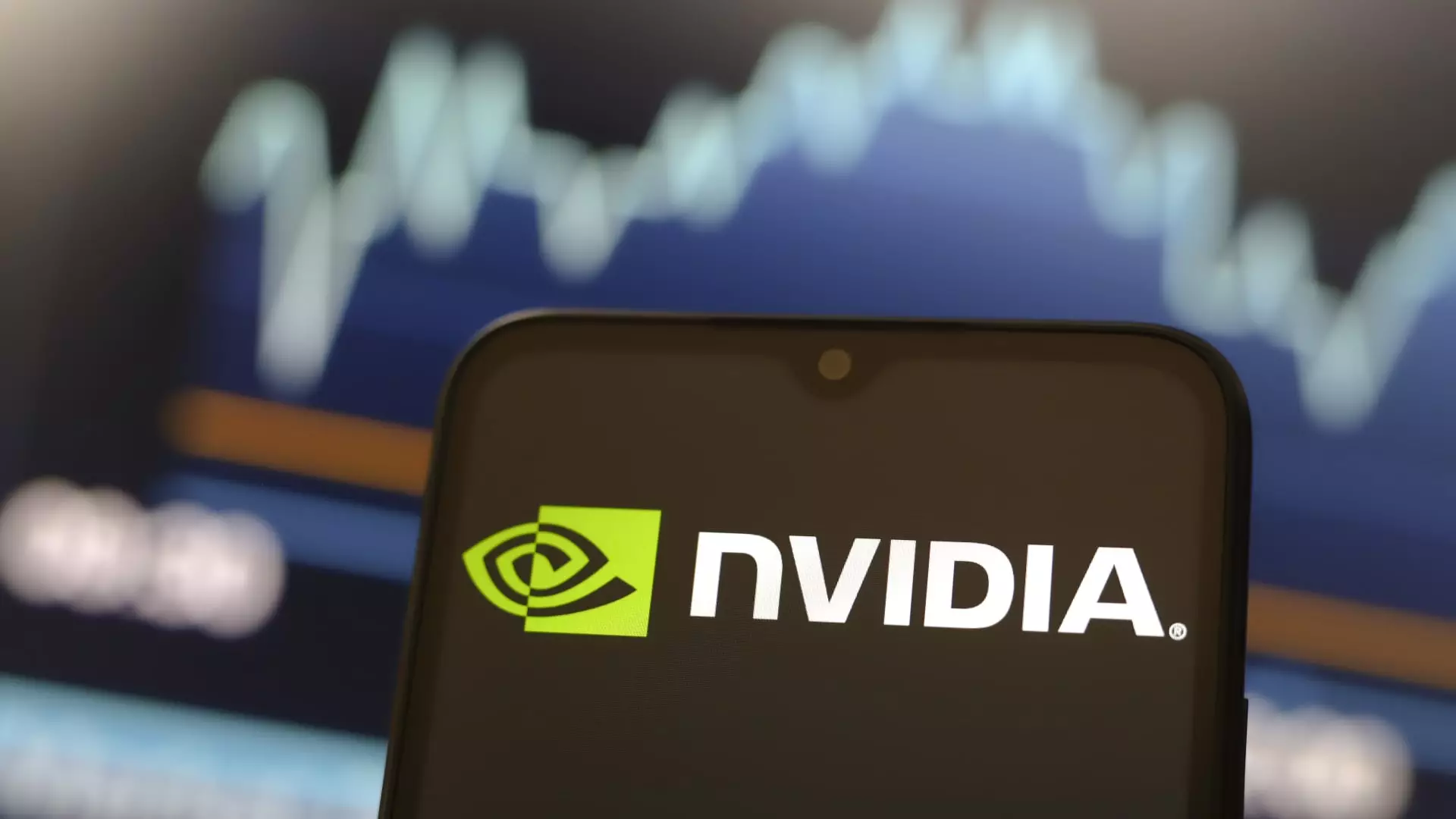The stock market is often a reflection of broader economic sentiments and technological advancements, but it is not immune to sudden volatility triggered by unexpected news. Recently, several prominent companies in the tech sector found themselves at the center of sharp declines in stock prices, driven by concerns over investments in artificial intelligence (AI) and associated technologies. This article delves into the day’s trading developments, scrutinizing the underlying factors contributing to these market fluctuations and their broader implications.
One of the most staggering drops was experienced by Nvidia, the renowned chipmaker, whose stock plummeted approximately 17%. This decline came on the heels of revelations surrounding performance metrics from DeepSeek, a Chinese startup, which raised significant skepticism about the effectiveness of AI investments across the industry. The rapid descent in Nvidia’s stock value was notable, marking its most significant one-day loss since March 2020, highlighting how quickly investor sentiment can shift based on emerging data.
Interestingly, Nvidia’s troubles did not exist in isolation; other semiconductor companies like Broadcom and Micron also saw sharp declines, with respective falls of more than 17% and over 11%. Advanced Micro Devices experienced a more modest decline of about 6% as the VanEck Semiconductor ETF dropped nearly 10%. This collective downturn is indicative of a broader sentiment that skepticism regarding the efficacy of the current AI technologies could affect the entire semiconductor landscape.
The selling frenzy also enveloped established tech giants, Microsoft and Oracle, which saw their stock prices decline by over 2% and 13%, respectively. The uncertainty stemmed from fears that hefty investments in AI data centers might not yield the expected returns. Microsoft has voiced plans to invest a staggering $80 billion in these centers for the fiscal year ending 2025, with a significant portion earmarked for projects in the U.S. However, as investors weigh these massive expenditures against the backdrop of fluctuating AI performances, doubts inevitably surface.
Oracle’s involvement in President Trump’s recently announced Stargate AI infrastructure project further complicates the picture, inviting scrutiny on whether the anticipated benefits of such endeavors will materialize soon enough to satisfy investor expectations.
Moreover, the apprehension surrounding AI technologies reverberated through the energy sector, particularly companies that are pivotal to powering data centers. Constellation Energy and Vistra faced staggering losses of over 20% and 28%, respectively. Other key players like GE Vernova and Talen Energy were not spared either, with declines exceeding 21%. The interconnectedness of these industries brings to light the potential ripple effects that investments in AI could have on associated sectors, especially when investor confidence wanes.
The wave of selling extended into cryptocurrency stocks, also tied to technological vulnerabilities. The downward trend in tech shares created pressure for crypto-related stocks. Coinbase and MicroStrategy reported declines of over 6% and 1%, respectively. However, the most notable losses were seen among Bitcoin miners—the backbone of AI ventures—where Core Scientific and TeraWulf suffered losses greater than 29%. The turbulence in this sector emphasizes how fluctuations in tech stocks can lead to a domino effect across market segments.
In stark contrast to the prevailing mood of the day, some companies experienced positive trading sessions. AT&T advanced by more than 6% after posting better-than-expected earnings, blowing past analyst estimates. Travel + Leisure rose approximately 2% after Bank of America upgraded it to a “buy,” citing potential for double-digit earnings growth amid resilient consumer behavior in the leisure travel sector.
Conversely, financial services platform SoFi Technologies incurred a significant drop of 10.3%, overshadowing optimistic earnings due to a cautious outlook for the first quarter. This scenario highlights an intrinsic paradox often seen in stock market behavior, wherein positive fundamentals can be overshadowed by negative forward guidance.
Today’s trading activity exemplifies the fragile nature of stocks within the technology sector, particularly as it relates to the uncertainties surrounding AI. The ripple effects of investor sentiment, driven by performance metrics and expectations of returns, create a complex landscape with implications extending well beyond the immediate players involved. As the market continues to evolve and adapt to new technological realities, stakeholders must navigate these turbulent waters with caution and insight.

